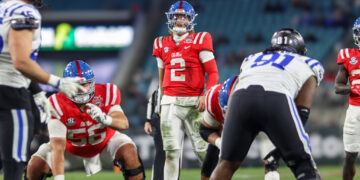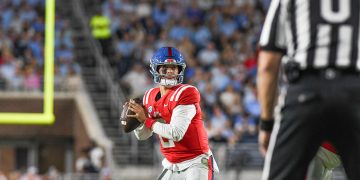Last week, the university released the results of the campus climate survey that kicked off in February 2019 after former Chancellor Jeffery Vitter resigned, Ed Meek’s name was removed from the journalism school and university professors published the UM Race Diary Project. The university now plans to hold forums on Sept. 29 and 30 with specific groups of campus constituents to discuss plans to utilize the survey results on campus.
Most of the survey findings were consistent with the campus climate surveys that Rankin & Associates has conducted at 220 other universities.
Sue Rankin, of Rankin & Associates, said that the survey’s information has to be “taken with a grain of salt” because Rankin & Associates is the only company with a data set on campus climates.
“We think you should use this as your baseline,” Rankin said. “You can use this as a benchmark for yourself because a lot of the institutions in our project are not the University of Mississippi. They (don’t have) the same contextual, political (and) social things that you’re dealing with compared to say, New York University or the University of Washington.”
The number of respondents at UM who said they experienced unwanted sexual misconduct was lower than average. Around 15% of the students, faculty and staff who were polled for the survey said they experienced unwanted sexual misconduct, while the mean for this statistic at other universities that have participated in Rankin & Associates surveys is 24%.
According to the survey, undergraduate women at UM are the overwhelming majority of those who experience unwanted sexual contact or sexual assault.
“We know from the literature that sexual misconduct on these sexual contact happens first year, first semester, first six weeks,” Rankin said.
Some other results that varied from other universities were that faculty and staff felt one of the main reasons they face harassment on campus is because of their political views, and students feel that one of the main reasons they experience harassment is due to “being in an organization.”
Rankin said she believed that the reason faculty and staff might feel they are being ostracized for their political views is that there have been several politically stirring issues on campus in the past several years, such as the relocation of the Confederate monument. She added that students feeling left out because of affiliation with a particular organization was something that almost never came up in surveys at other universities, and she believed that it was probably happening at UM because of the large Greek system on campus.
“One of the things that we’ve talked about with the committee, and students kind of agree with us, is that perhaps (students feeling this way) is because of the very large fraternity and sorority system that you have at UM,” Rankin said. “If you’re not part (of it), you could be feeling that conduct, or if you are part (of it), you could be feeling that conduct.”
On Tuesday, the university hosted a question and answer session via Zoom about the climate survey results with consultants from Rankin & Associates, the consulting firm contracted to conduct the study, and university administrators.
Shawnboda Mead, interim vice chancellor for diversity and community engagement, said there are three areas that the university has already identified where they can use the survey results on campus.
“In terms of staff, creating toolkits for managers to help improve hiring and supervision skills,” Mead said. “For faculty, creating more inclusive classrooms, advising (and) training opportunities to include inclusive teaching, strategies and advising along those lines. Then for students, more cohort-based models to help create and foster a sense of belonging.”
Mead said that the impact of the COVID-19 pandemic might modify how the survey results are utilized, but the survey results are important nonetheless.
“The impact of COVID-19 cannot be overstated, (but) the findings of this report remain relevant because even with the majority of interactions taking place as virtual engagements, we still experience a campus climate,” Mead said. “Especially during these challenging times, a more positive campus climate improves learning, well-being, productivity and success of students, faculty and staff.
The survey results showed that one of the top reasons students want to leave the university is a lack of a sense of belonging, and staff sometimes don’t feel like they have opportunities to move up in their departments.
The university will wait for feedback from the forums that will be held on Sept. 29 and 30 before it moves forward with any plans.



























